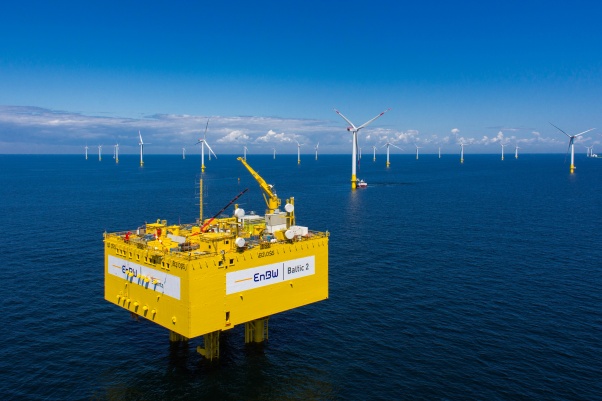Baltic InteGrid – Integrated Baltic Offshore Wind Electricity Grid Development
The Interreg project Baltic InteGrid analysed the framework conditions for the development of a common offshore power grid infrastructure of the Baltic Sea states. The aim of the project was to make a significant contribution to the coordinate planning for network infrastructure of the offshore wind farms in the Baltic region.
Background and project goals
The development of meshed electricity networks in the North Sea and the Baltic Sea can improve the energy efficiency and environmental benefits of offshore wind farms. At the moment, the wind energy potential is not being maximised in the Baltic Sea region, and the national electricity markets are not sufficiently integrated into the European grid. In addition, there are still deficits in the regulatory environment in the individual Baltic Sea states and at the European level, of which some are opposed to the conceptual design of a common offshore power grid infrastructure. In contrast to the North Sea, the development of offshore power grid infrastructure in the Baltic Sea still lags behind. The Interreg project Baltic InteGird (Integrated Baltic Offshore Wind Power Grid Development) therefore aimed to serve as the framework for the development of a common offshore power grid infrastructure for the Baltic Sea states. The goal of the project was to make a significant contribution to the coordinated planning of grid infrastructure for offshore wind farms in the Baltic Sea. The development of a meshed electricity network in the Baltic Sea is an important step towards sustainable electricity generation and the strengthening of supply security in the region, as well as the further integration of the Eastern European electricity grid.
Project partners
Fourteen partners from all eight EU Baltic Sea states participated in the project. The majority of the partners came from the field of research and consulting. In addition, a large number of companies from the manufacturing industry, network operators and non-profit organisations were closely linked to the project. Within the scope of the project, concepts and solutions for meshed offshore power grids in the technical, regulatory and economic sectors had to be presented and discussed with the stakeholders at workshops, seminars and conferences. The German Offshore Wind Energy Foundation was responsible for project communication and stakeholder management, among other aspects. This includes the development of online communication and corporate identity and the planning and implementation of events and workshops.
Project period and support

March 2016 – February 2019. The project was promoted within the framework of the EU funding program Interreg Baltic Sea Region.
More information at Official Baltic InteGrid Homepage
Contact person
Thilo Krupp (t.krupp@offshore-stiftung.de)
Project partner overview
|
Organisation |
Country |
|
IKEM |
Germany |
|
Foundation for Sustainable Energy (FNEZ) |
Poland |
|
Rostock Business and Technology Development |
Germany |
|
Technical University of Denmark (DTU) |
Denmark |
|
Energy Agency for Southeast Sweden |
Sweden |
|
Deutsche WindGuard |
Germany |
|
Maritime Institute in Gdańsk (MIG) |
Poland |
|
German Offshore Wind Energy Foundation |
Germany |
|
Latvian Association of Local and Regional Governments |
Latvia |
|
Aalto University |
Finland |
|
University of Tartu |
Estonia |
|
Klaipeda University Coastal Research and Planning Institute (CORPI) |
Lithuania |
|
Lund University |
Sweden |
|
University of Aarhus |
Denmark |
